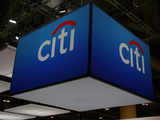Suggest a new Definition
Proposed definitions will be considered for inclusion in the Economictimes.com
Equity
- PREV DEFINITION
- NEXT DEFINITIONEquity DilutionEquity dilution refers to the cut down in the stock holding of shareholders in relative terms of a particular company.Read More
What is 'Equity'
Equity
Equity is the amount of money that a company's owner has put into it or owns. On a company's balance sheet, the difference between its liabilities and assets shows how much equity the company has. The share price or a value set by valuation experts or investors is used to figure out the equity value. This account is also called owners' equity, stockholders' equity, or shareholders' equity.
What does equity mean?
Equity, also called shareholders' equity or owners' equity for privately held corporations, is the amount of money given to a company's shareholders if all of its assets were sold and all of its debts were paid off. In the case of an acquisition, it is the value of the company's income minus any debts that are not part of the deal. A company's book value could also be its shareholders' equity. Equity is one of the most common ways that analysts judge a business's financial health. The value of equity is determined from the balance sheet of the company.
The Way Owner Equity Works
The equity equation determines the current situation of the company. It does this by comparing exact numbers that show what the company owns and what it owes. A company raises money by selling shares, which are used to invest in projects, and pay for operations. The company's assets grow as a result.
A company can get money by issuing debt (like loans or bonds) or stock (by selling a stock). Most investors choose equity investments because they give them a bigger chance to benefit from a company's growth and profits.
Equity is important because it shows how much an investor has invested in a business based on how many shares they own. When you own stock in a company, you can make capital gains and get dividends. Also, if a person owns equities, he or she can vote on how the company is run and who should be on the board. Because of these benefits, shareholders are more likely to stay involved with the organization.
There may be negative or positive shareholder equity. If it's negative, the company's debts are greater than its assets. If this keeps happening, the company is said to be insolvent. Investors usually don't want to put their money into companies with negative shareholder equity
Shareholder equity alone is not a good way to tell how healthy a company's finances are. Still, when combined with other tools and measures, an investor can get a good idea of how healthy the company is.
How to figure out shareholder equity and what formula to use?
Using the accounting equation, you can use the following formula and calculation to figure out a company's equity:
Owners' equity = total assets - total liabilities
This information can be found on the balance sheet, where you should do the following four things:
Shareholder equity is also the sum of a company's share capital, retained earnings, and the value of its treasury shares. This method is less common, though. The use of a company's total assets and total liabilities is a better indicator of its financial health than just the use of its total assets.
Ownership and Equity Components
The percentage of net income not dispersed as dividends is known as retained profits, and it is a component of shareholder equity. If you think of the profits that have been set aside or saved for the future as retained earnings, you're on the right track. As the company continues to invest a portion of its profits, retained earnings grow. Stockholders' equity contributions may one day exceed the amount of cumulative retained earnings. For companies that have been around for a long time, stockholders' equity tends to be dominated by the value of the company's retained earnings.
Different kinds of equity
The idea of equity is important for more than just judging a company. In a broader sense, equity is a way to figure out how much you own of any asset after you take away all the debts that go with it.
Here are some of the most common types of equity:
What is equity in a business?
Equity is the value that is given to a company's shareholders in terms of finance and accounting. The book value of equity is found by taking the difference between equity and assets. Getting an accurate picture of assets and liabilities. Liabilities are legal obligations or debts that the company has to pay.
What is equity in a balance sheet?
In a balance sheet, the equity is the book value of the shareholder's assets after the liabilities are removed.
Why is equity so important?
Equity is an important measure to ascertain the value of the shareholder's funds. When combined with other factors, it gives an idea of the value of a company.
What is a company's market cap, and is it the same as equity?
The market cap of the company is the market value of the company. In other words, it is the value of the equity as determined by the market.
Disclaimer: This content is authored by an external agency. The views expressed here are that of the respective authors/ entities and do not represent the views of Economic Times (ET). ET does not guarantee, vouch for or endorse any of its contents nor is responsible for them in any manner whatsoever. Please take all steps necessary to ascertain that any information and content provided is correct, updated and verified. ET hereby disclaims any and all warranties, express or implied, relating to the report and any content therein.
Equity is the amount of money that a company's owner has put into it or owns. On a company's balance sheet, the difference between its liabilities and assets shows how much equity the company has. The share price or a value set by valuation experts or investors is used to figure out the equity value. This account is also called owners' equity, stockholders' equity, or shareholders' equity.
What does equity mean?
Equity, also called shareholders' equity or owners' equity for privately held corporations, is the amount of money given to a company's shareholders if all of its assets were sold and all of its debts were paid off. In the case of an acquisition, it is the value of the company's income minus any debts that are not part of the deal. A company's book value could also be its shareholders' equity. Equity is one of the most common ways that analysts judge a business's financial health. The value of equity is determined from the balance sheet of the company.
The Way Owner Equity Works
The equity equation determines the current situation of the company. It does this by comparing exact numbers that show what the company owns and what it owes. A company raises money by selling shares, which are used to invest in projects, and pay for operations. The company's assets grow as a result.
A company can get money by issuing debt (like loans or bonds) or stock (by selling a stock). Most investors choose equity investments because they give them a bigger chance to benefit from a company's growth and profits.
Equity is important because it shows how much an investor has invested in a business based on how many shares they own. When you own stock in a company, you can make capital gains and get dividends. Also, if a person owns equities, he or she can vote on how the company is run and who should be on the board. Because of these benefits, shareholders are more likely to stay involved with the organization.
There may be negative or positive shareholder equity. If it's negative, the company's debts are greater than its assets. If this keeps happening, the company is said to be insolvent. Investors usually don't want to put their money into companies with negative shareholder equity
Shareholder equity alone is not a good way to tell how healthy a company's finances are. Still, when combined with other tools and measures, an investor can get a good idea of how healthy the company is.
How to figure out shareholder equity and what formula to use?
Using the accounting equation, you can use the following formula and calculation to figure out a company's equity:
Owners' equity = total assets - total liabilities
This information can be found on the balance sheet, where you should do the following four things:
- Find the company's total assets on the balance sheet for the period.
- On the balance sheet, each type of liability should be listed separately.
- To find the shareholders' equity, take the total liabilities and subtract them from the total assets.
- Keep in mind that you will get the total assets if you add up all of the debts and all of the equity.
Shareholder equity is also the sum of a company's share capital, retained earnings, and the value of its treasury shares. This method is less common, though. The use of a company's total assets and total liabilities is a better indicator of its financial health than just the use of its total assets.
Ownership and Equity Components
The percentage of net income not dispersed as dividends is known as retained profits, and it is a component of shareholder equity. If you think of the profits that have been set aside or saved for the future as retained earnings, you're on the right track. As the company continues to invest a portion of its profits, retained earnings grow. Stockholders' equity contributions may one day exceed the amount of cumulative retained earnings. For companies that have been around for a long time, stockholders' equity tends to be dominated by the value of the company's retained earnings.
Different kinds of equity
The idea of equity is important for more than just judging a company. In a broader sense, equity is a way to figure out how much you own of any asset after you take away all the debts that go with it.
Here are some of the most common types of equity:
- A share of ownership in a company, shown by a stock or other security.
- On a company's balance sheet, this is the amount of money given by the owners or shareholders plus the amount of money that the company has kept (or losses). This is sometimes called "shareholder equity" or "equity of stockholders."
- The difference between the value of the securities in a margin account and the amount borrowed from the brokerage for margin trading.
- The difference between how much a house is worth right now and how much is still owed on its mortgage. The amount the owner would get after the property is sold and any liens are paid. The same thing can also be called "actual property value."
- When a company goes bankrupt and has to be liquidated, the amount left over after creditors are paid in equity. This type of investment is also called "risk capital" or "liable capital."
What is equity in a business?
Equity is the value that is given to a company's shareholders in terms of finance and accounting. The book value of equity is found by taking the difference between equity and assets. Getting an accurate picture of assets and liabilities. Liabilities are legal obligations or debts that the company has to pay.
What is equity in a balance sheet?
In a balance sheet, the equity is the book value of the shareholder's assets after the liabilities are removed.
Why is equity so important?
Equity is an important measure to ascertain the value of the shareholder's funds. When combined with other factors, it gives an idea of the value of a company.
What is a company's market cap, and is it the same as equity?
The market cap of the company is the market value of the company. In other words, it is the value of the equity as determined by the market.
Disclaimer: This content is authored by an external agency. The views expressed here are that of the respective authors/ entities and do not represent the views of Economic Times (ET). ET does not guarantee, vouch for or endorse any of its contents nor is responsible for them in any manner whatsoever. Please take all steps necessary to ascertain that any information and content provided is correct, updated and verified. ET hereby disclaims any and all warranties, express or implied, relating to the report and any content therein.
- PREV DEFINITION
- NEXT DEFINITIONEquity DilutionEquity dilution refers to the cut down in the stock holding of shareholders in relative terms of a particular company.Read More
Related News
 It’s time that the stock market is made accessible to retail investors without the risk of punting or tradingHouseholds will not, and should not, resort to stock trading as their tool to manage surplus funds. Many retail investors are still unable to deftly book losses and keep the focus on the capital and its protection. They are still product-oriented and care more about the rate of return. When capital loses value, they still find it tough to book a loss and redeploy.
It’s time that the stock market is made accessible to retail investors without the risk of punting or tradingHouseholds will not, and should not, resort to stock trading as their tool to manage surplus funds. Many retail investors are still unable to deftly book losses and keep the focus on the capital and its protection. They are still product-oriented and care more about the rate of return. When capital loses value, they still find it tough to book a loss and redeploy. What are AT1 Bonds: 5 things to knowAT1 are Additional Tier 1 bonds that banks issue to maintain strong balance sheets. Tier 1 capital refers to equity and other forms of permanent capital.
What are AT1 Bonds: 5 things to knowAT1 are Additional Tier 1 bonds that banks issue to maintain strong balance sheets. Tier 1 capital refers to equity and other forms of permanent capital. PC Jeweller to raise Rs 2,705 crore via warrants; promoters to infuse Rs 850 crorePC Jeweller Ltd plans to raise up to Rs 2,705 crore by issuing warrants on a preferential basis to promoters and investors, mainly to settle bank loans and for working capital requirements. Promoters will infuse around Rs 850 crore into the company by subscribing to warrants issued by the company.
PC Jeweller to raise Rs 2,705 crore via warrants; promoters to infuse Rs 850 crorePC Jeweller Ltd plans to raise up to Rs 2,705 crore by issuing warrants on a preferential basis to promoters and investors, mainly to settle bank loans and for working capital requirements. Promoters will infuse around Rs 850 crore into the company by subscribing to warrants issued by the company. Budget Bets: Pushing sugar sector in the clean energy chain is good for politicians & industry: 5 sugar stock with upside potential of up to 25%After multiple attempts were made between 2001 and 2002, finally it was post 2015 that the sugar sector started witnessing a turnaround. Why is this turnaround special? Because all the stakeholders of the sector, the farmer, the industry, the politicians, and customers have been happier in the last nine years. Given the fact that sugar is a subject which comes under both state and central government, it is probably one of the most complex industries to make any changes. Another fact is among the industry which despite being in existence for ages, none of the stocks has been able to reach a level where they would be classified as large cap stocks.This typically happens in industries which operate in specific regions. But in the long run if the sugar industry becomes an integral part of the clean energy system then things might change.
Budget Bets: Pushing sugar sector in the clean energy chain is good for politicians & industry: 5 sugar stock with upside potential of up to 25%After multiple attempts were made between 2001 and 2002, finally it was post 2015 that the sugar sector started witnessing a turnaround. Why is this turnaround special? Because all the stakeholders of the sector, the farmer, the industry, the politicians, and customers have been happier in the last nine years. Given the fact that sugar is a subject which comes under both state and central government, it is probably one of the most complex industries to make any changes. Another fact is among the industry which despite being in existence for ages, none of the stocks has been able to reach a level where they would be classified as large cap stocks.This typically happens in industries which operate in specific regions. But in the long run if the sugar industry becomes an integral part of the clean energy system then things might change. Taiwan, India threaten China’s top spot in EM equity portfoliosThe rise of Taiwan and India is allowing investors to better diversify by betting on artificial intelligence chipmakers and the infrastructure boom coming from Modi’s programs to modernize the country. As the US rate cycle peaks out, having attractive options in emerging markets is fundamental to any pivoting of capital flows.
Taiwan, India threaten China’s top spot in EM equity portfoliosThe rise of Taiwan and India is allowing investors to better diversify by betting on artificial intelligence chipmakers and the infrastructure boom coming from Modi’s programs to modernize the country. As the US rate cycle peaks out, having attractive options in emerging markets is fundamental to any pivoting of capital flows. Citigroup Q2 Results: Profit beats on surge in investment banking, services strength; but shares fall 3%The third-largest U.S. lender reported a profit of $1.52 per share for the three months ending June 30, surpassing analysts' expectations of $1.39, according to LSEG data. Warren Kornfeld, senior vice president in the financial institutions group at Moody’s Ratings, noted that these results highlight Citi's challenging path toward achieving its shareholder returns target of 11% to 12%, up from 7.2% in the second quarter.
Citigroup Q2 Results: Profit beats on surge in investment banking, services strength; but shares fall 3%The third-largest U.S. lender reported a profit of $1.52 per share for the three months ending June 30, surpassing analysts' expectations of $1.39, according to LSEG data. Warren Kornfeld, senior vice president in the financial institutions group at Moody’s Ratings, noted that these results highlight Citi's challenging path toward achieving its shareholder returns target of 11% to 12%, up from 7.2% in the second quarter. MFs’ share in total institutional equity hits a recordIndian domestic mutual funds have seen a significant increase in equity investments, reaching a record high in June 2024. This trend indicates a growing interest from ordinary Indian savers in the equity market. The continuous inflows and capital appreciation have propelled the total equity portfolio of domestic mutual funds to new levels.
MFs’ share in total institutional equity hits a recordIndian domestic mutual funds have seen a significant increase in equity investments, reaching a record high in June 2024. This trend indicates a growing interest from ordinary Indian savers in the equity market. The continuous inflows and capital appreciation have propelled the total equity portfolio of domestic mutual funds to new levels. HDFC Bank invests in anchor round of this high-demand SME IPO with over 100% GMPHDFC Bank has been allocated approximately 1.58 lakh shares worth Rs 3 crore at Rs 190 each in the anchor round of the Ganesh Green Bharath IPO, which opened for subscription recently. Other notable investors in the anchor round include Copthall Mauritius Investment, India Equity Fund, and Craft Emerging Market Fund.
HDFC Bank invests in anchor round of this high-demand SME IPO with over 100% GMPHDFC Bank has been allocated approximately 1.58 lakh shares worth Rs 3 crore at Rs 190 each in the anchor round of the Ganesh Green Bharath IPO, which opened for subscription recently. Other notable investors in the anchor round include Copthall Mauritius Investment, India Equity Fund, and Craft Emerging Market Fund. Staggered bets in multi-asset MFs look apt amid bullish sentimentExperts advocate cautious investment in multi-asset schemes like ICICI Pru Multi Asset and Kotak Multi Asset Allocator, especially in uncertain markets with rising gold prices and unexpected shifts, for diversified long-term gains.
Staggered bets in multi-asset MFs look apt amid bullish sentimentExperts advocate cautious investment in multi-asset schemes like ICICI Pru Multi Asset and Kotak Multi Asset Allocator, especially in uncertain markets with rising gold prices and unexpected shifts, for diversified long-term gains. How is an active fund manager different from a passive one?A fund manager is a part of the investment team at a fund house and one of the most important persons responsible for building the portfolio, monitoring it, generating returns and ensuring it runs in line with the objectives and mandate of the fund.
How is an active fund manager different from a passive one?A fund manager is a part of the investment team at a fund house and one of the most important persons responsible for building the portfolio, monitoring it, generating returns and ensuring it runs in line with the objectives and mandate of the fund.
Load More